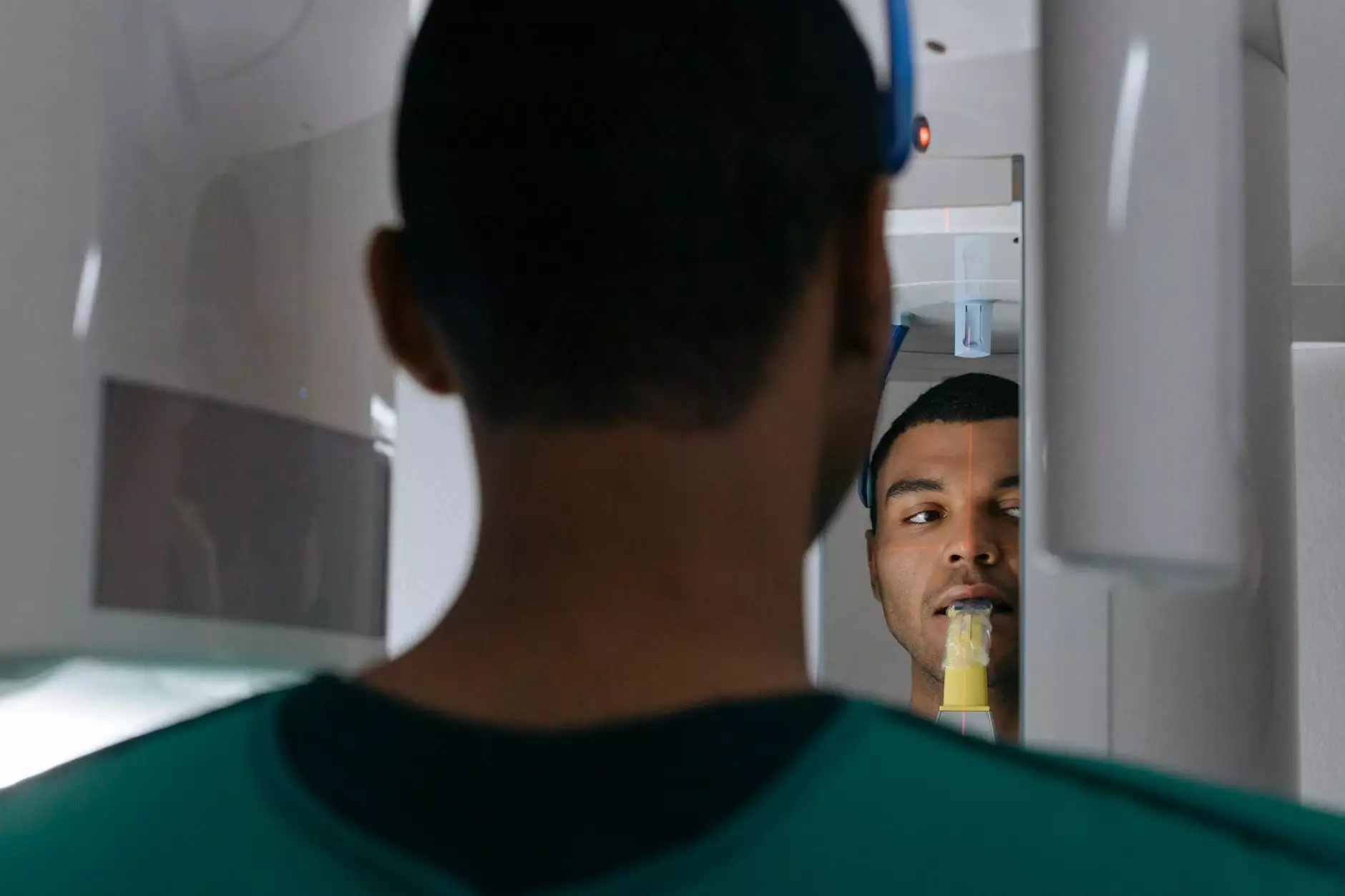Understanding Lung CT Scans: Importance in Health and Medical Fields

Lung CT scans, or computed tomography scans of the lungs, are a vital tool in the modern medical landscape. They offer crucial insights into respiratory health, aiding in the diagnosis of various conditions and informing treatment plans. In this comprehensive article, we will delve into the world of lung CT scans, exploring their significance across the Health & Medical, Sports Medicine, and Physical Therapy categories.
What is a Lung CT Scan?
A lung CT scan is a diagnostic imaging procedure that uses advanced X-ray technology to create detailed cross-sectional images of the lungs. This non-invasive procedure allows healthcare providers to see the lungs in great detail, making it an essential resource for diagnosing lung diseases and assessing lung function.
The Technology Behind Lung CT Scans
Unlike a traditional X-ray, which provides only a flat image, a CT scan generates a series of images from different angles, which a computer then compiles into a comprehensive 3D representation of the lungs. This technology enables the detection of abnormalities such as tumors, cysts, infections, and other respiratory disorders.
When is a Lung CT Scan Recommended?
- Persistent Coughing: If a chronic cough lasts more than three weeks, a CT scan may help identify the underlying cause.
- Unexplained Weight Loss: Sudden weight loss could indicate a serious condition, and a lung CT scan may help diagnose issues related to lung health.
- Evaluation of Lung Nodules: Previous scans might reveal nodules, prompting further investigation through a CT scan.
- Assessment of Respiratory Symptoms: Patients with symptoms like shortness of breath or chest pain may undergo this scan for a clearer picture of lung conditions.
Benefits of Lung CT Scans in Healthcare
The implications of lung CT scans extend far beyond mere diagnostic capabilities. They play a critical role in managing and treating various conditions. Below are some of the key benefits:
1. Early Detection of Lung Diseases
Early detection is crucial in treating lung cancer and other serious respiratory conditions. Lung CT scans can identify tumors at an early stage, significantly improving patient outcomes. Studies have shown that early intervention in lung cancer cases leads to higher survival rates.
2. Comprehensive Evaluation of Lung Health
CT scans provide a comprehensive view of lung health. They allow doctors to identify not only tumors but also other conditions such as:
- Pneumonia: Detection of infections in the lung tissues.
- Pulmonary Embolism: Identification of blood clots in the lungs.
- Interstitial Lung Disease: Assessment of chronic lung scarring.
3. Tailored Treatment Plans
With detailed imaging, healthcare providers can tailor treatment plans to fit individual patient needs. For example:
- Radiation oncologists can use scan results to determine the precise location and size of tumors for more effective radiation therapy.
- Surgeons can plan operations with a thorough understanding of lung conditions, minimizing risks during procedures.
4. Monitoring Treatment Progress
After treatment initiation, lung CT scans are invaluable for monitoring progress. They allow healthcare professionals to:
- Evaluate the effectiveness of treatments like chemotherapy or radiation.
- Identify recurrence of diseases at an early stage.
Lung CT Scans in Sports Medicine
In the realm of sports medicine, lung health plays a crucial role in athletic performance. Oxygen intake and utilization are vital for athletes, and any compromise in lung function can affect performance. Here’s how lung CT scans are relevant:
1. Assessing Respiratory Function in Athletes
Athletes may be subjected to lung CT scans to evaluate their respiratory function, especially if they exhibit symptoms such as:
- Shortness of breath during exercise.
- Persistent wheezing or coughing.
Such assessments can guide training regimens and prevent potential health issues from escalating.
2. Identifying Lung Conditions Related to Sports
Specific sports may place athletes at risk for certain lung conditions. For example:
- Swimmers: Can develop swimmer's lung, which may present with symptoms like increased mucus production.
- Runners: Can be affected by exercise-induced asthma.
Lung CT scans can help diagnose these conditions, thus fostering better performance management and care strategies.
Lung CT Scans in Physical Therapy
Physical therapists often work with patients recovering from respiratory illnesses or surgeries. Understanding lung health through CT scans enhances physical therapy interventions. Here are a few benefits:
1. Tailored Rehabilitation Programs
After a lung surgery, a CT scan can help physical therapists design personalized rehabilitation programs that focus on:
- Improving lung capacity.
- Enhancing overall physical endurance.
2. Monitoring Recovery Progress
CT scans allow physical therapists to monitor the effectiveness of rehabilitation strategies and make adjustments when necessary.
What to Expect During a Lung CT Scan?
Understanding the process of a lung CT scan can ease patient anxiety. Here’s what you can generally expect:
1. Preparation
Patients are usually advised to wear loose, comfortable clothing and may be asked to remove jewelry and other metal objects that could interfere with the scan.
2. The Procedure
During the scan, the patient lies on a motorized table that moves into the machine. The procedure typically lasts about 10 to 30 minutes. Patients should remain still to produce clear images, and they will be instructed to hold their breath for short periods while the images are taken.
3. Post-Scan Expectations
After the scan, patients can usually return to normal activities immediately. The radiologist will analyze the images and send a report to the referring physician within a few days.
Conclusion
In conclusion, lung CT scans are an essential tool in modern healthcare. They facilitate early diagnosis, influence treatment decisions, and enhance therapeutic approaches across various medical fields, including Health & Medical, Sports Medicine, and Physical Therapy. As awareness of respiratory health continues to grow, the importance of lung CT scans cannot be overstated. With their ability to provide detailed insights into lung health, they remain a cornerstone of effective patient care and management. For more information on lung health and diagnostic imaging, consult with qualified health professionals at Hello Physio.



